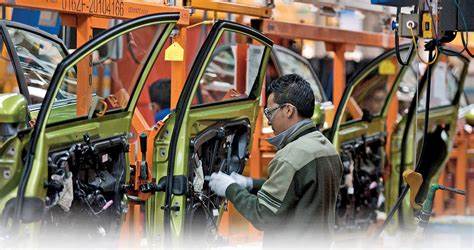Understanding Bureau of Automotive Repair Violations

As an automotive repair business owner, it is important to be aware of Bureau of Automotive Repair violations and their potential ramifications. Bureau of Automotive Repair violations refer to any actions or practices that violate the regulations set forth by the bureau of automotive repair complaints. Non-compliance with these regulations can result in serious repercussions, such as fines, license revocation, and legal action.
It is crucial for businesses to prioritize compliance and take proactive measures to prevent violations. This includes implementing effective prevention strategies, such as proper training for employees and regular inspections of equipment and processes. By staying informed and up-to-date on regulations, businesses can avoid potential violations and maintain a positive reputation within the industry.
Throughout this article, we will explore the concept of bureau of automotive repair violations in detail. We will delve into the importance of compliance, the potential repercussions for non-compliance, and effective prevention strategies that businesses can implement to ensure adherence to regulations.
Bureau of Automotive Repair Violations: Compliance Matters
Contents
Compliance is essential when it comes to Bureau of Automotive Repair violations. Obtaining a Bureau of Automotive Repair license is a requirement to operate an automotive repair business in California. The bureau’s role is to regulate the industry and ensure adherence to regulations.
By maintaining compliance with regulations, automotive repair businesses can avoid potential violations and maintain a strong reputation within the industry. The bureau of automotive repair license application process involves meeting specific criteria, such as the requirement for an established place of business and appropriate equipment. It also requires passing an examination.
Additionally, the Bureau of Automotive Repair conducts regular inspections of licensed facilities to ensure they are complying with regulations. These inspections are critical to maintaining compliance and avoiding potential violations.
Dealing with Bureau of Automotive Repair Violations: Complaints and Prevention
Dealing with Bureau of Automotive Repair violations can be a daunting process. However, it is crucial for automotive repair businesses to understand how to handle complaints related to violations and implement effective prevention strategies to avoid future non-compliance.
Filing Complaints
If you believe that a business is violating Bureau of Automotive Repair regulations, it is important to file a complaint. This can be done online, by mail, or by phone. Be sure to provide as much detail about the violation as possible to assist with the investigation. The Bureau of Automotive Repair takes complaints seriously and investigates every allegation of non-compliance.
Investigation and Resolution
Once a complaint is filed, the Bureau of Automotive Repair will investigate and determine if a violation has occurred. If a violation is found, the business will be notified and given the opportunity to make the necessary corrections. The Bureau of Automotive Repair works with businesses to ensure that they understand the regulations and are able to comply with them. If a business fails to comply or repeatedly violates regulations, they may face penalties or revocation of their Bureau of Automotive Repair license.
Prevention Strategies
The best way to deal with Bureau of Automotive Repair violations is to prevent them from happening in the first place. There are several effective prevention strategies that businesses can implement to maintain compliance:
- Educate employees: Ensure that all employees are trained on Bureau of Automotive Repair regulations and understand the importance of compliance.
- Perform regular audits: Conduct regular audits to identify any potential non-compliance issues and address them promptly.
- Maintain accurate records: Keep accurate records of all repairs and maintenance performed, as well as any parts used. This will help demonstrate compliance with regulations if an investigation occurs.
- Stay up-to-date: Keep up-to-date with any changes to Bureau of Automotive Repair regulations and adjust business practices accordingly.
By following these prevention strategies, automotive repair businesses can minimize the risk of Bureau of Automotive Repair violations and maintain a positive reputation within the industry.




